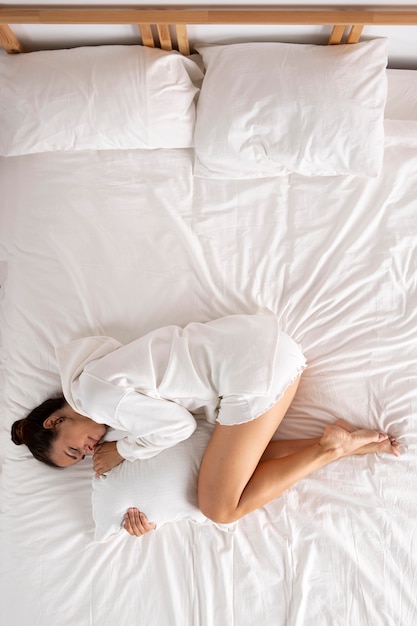
Do you find that taking an Ambien is the only way you can get a few hours of sleep? Lack of sleep can seriously impact your health, leading to increased stress, less concentration, slower reaction times, and more.
Instead of relying on over-the-counter drugs, consider natural sleep aids and some lifestyle changes. They generally have fewer side effects and can improve your sleep cycles.
Let’s dive into some sleep hacks you can easily incorporate into your life.
When your body temperature drops, you’re more likely to feel sleepy. So, take a hot bath or shower just before bedtime. Afterward, as your body cools down, you’ll start feeling drowsy. Don’t delay—head straight to bed, and you might find yourself asleep as soon as your head hits the pillow!
To make your bath even more relaxing, add some lavender essential oils. Lavender is known to relax muscles and slow your heartbeat, promoting a deep sleep cycle.
Power naps, popular nowadays, have their benefits. They can be refreshing and help improve alertness. However, naps can’t replace the essential 6-8 hours of nightly sleep your body needs. Research indicates that napping during the day might disrupt your circadian rhythm, the internal process that regulates sleep and wakefulness. Avoid naps to maintain a balanced rhythm, tempting as a quick 20-minute nap might seem.
Following a standard 24-hour day cycle might not work for everyone, especially with longer work hours and increased screen time. The newer 28-hour day concept offers more flexibility. By extending the cycle, you can plan your life better, spending 20 hours awake and 8 hours sleeping. While this schedule may be difficult for those with conventional jobs, the pandemic has shifted work cultures, making this new cycle more feasible.
Regular physical exercise positively impacts your sleep. A 30-minute moderate to high-intensity workout, preferably in the morning, can help you relax and recover by the end of the day. Exercising 4-5 times a week can regulate blood pressure, lower your heart rate, and improve cardiovascular health. Exercise also relieves stress, helping you sleep better.
Your sleep environment matters too. Ensuring you feel safe and comfortable can significantly improve your sleep quality. Avoid using smartphones, tablets, or e-book readers before bed. The light from these devices reduces melatonin production, the hormone that regulates sleep. Try a no-device policy 30 minutes before bed. Leave your phone on the dresser, shut off your laptop, and turn off the TV to help yourself relax.
One friend suggested using a timer instead of an alarm. She feels it tricks her mind into thinking she has more time to sleep and also helps record her sleep cycle. For some, an alarm can be stressful, causing them to wake up at odd hours to check the time. It might be worth trying to eliminate the clock altogether.
These sleep hacks and natural aids can help restore your sleep cycle. For holistic relief, herbs like those found in Chill Pill can be beneficial. Chill Pill is a mix of sleep-inducing herbs and GABA, promoting deep sleep. Complement these lifestyle changes with three Chill Pill tablets before bed to wake up rested and refreshed.